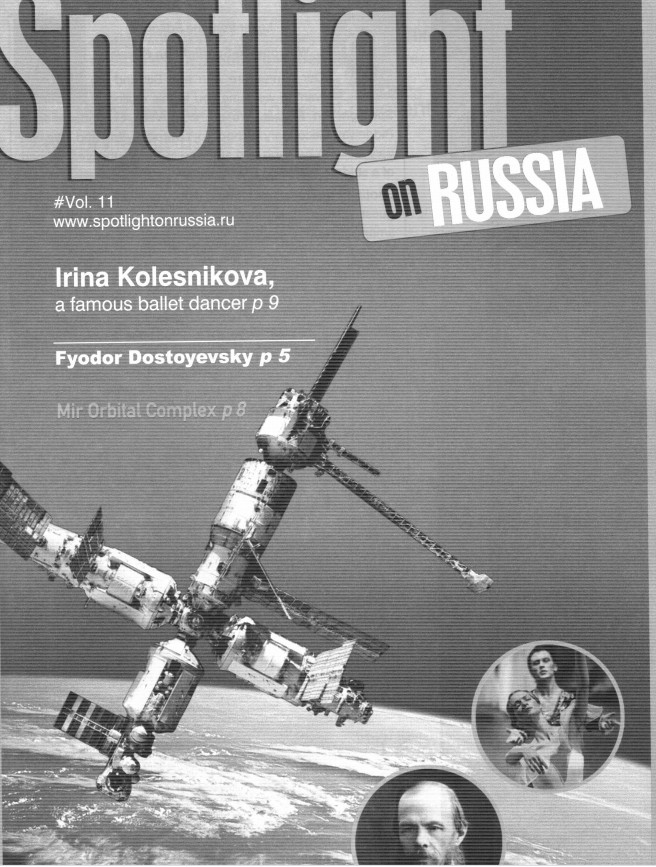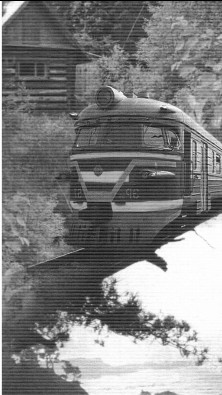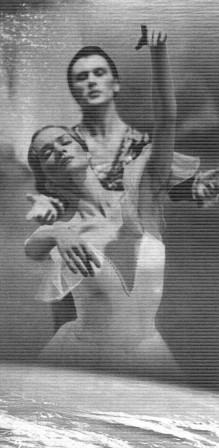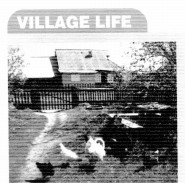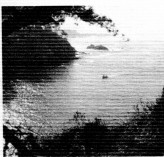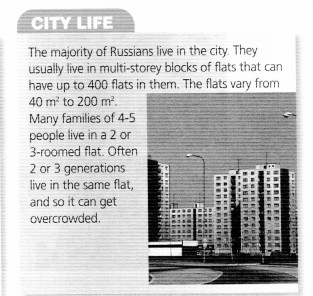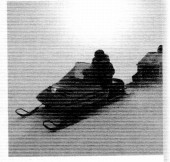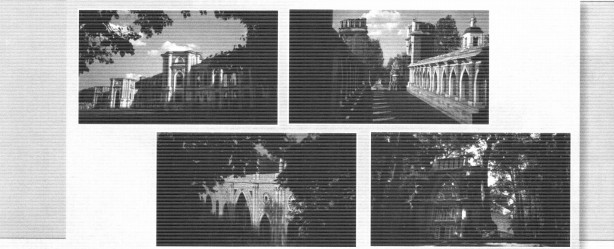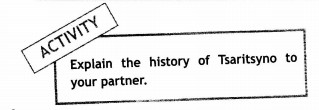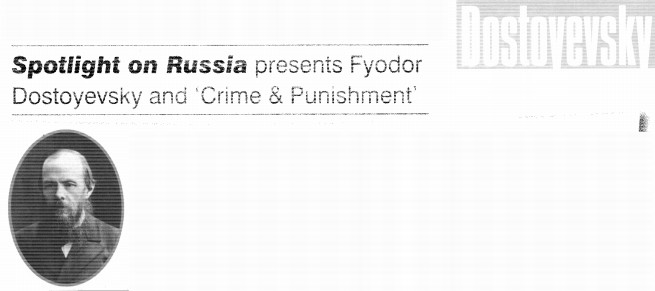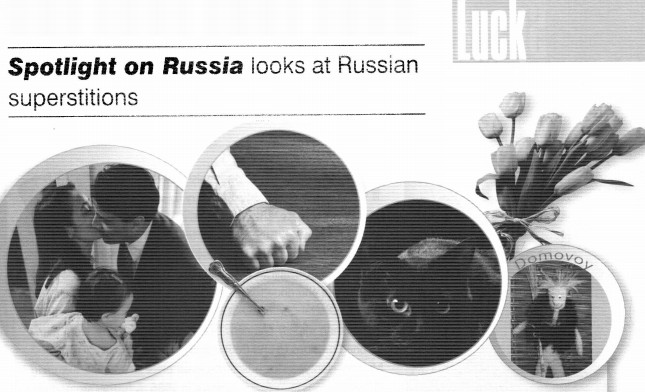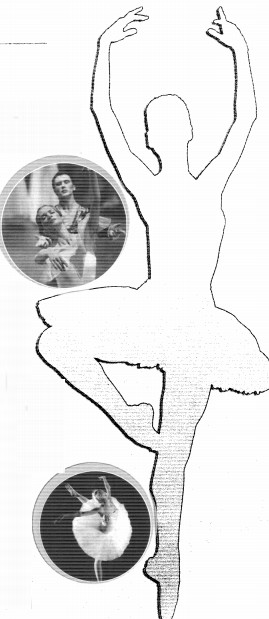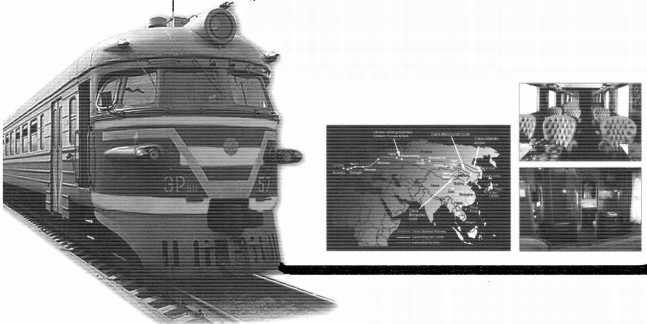|
Гипермаркет знаний>>Английский язык>>Английский язык 11 класс>> Spotlight on Russia
Spotlight on Russia has invited us to work for the magazine as guest editors. This year we will be travelling across this amazing country and learning as much as we can about Russian culture, geography, environmental issues, free-time activities and much more. We'll share our impressions of life in Russia with you, and we hope you'll tell us more about different aspects of life in your great country! Please send us your ideas about places we should see and things we should do while we are here. You can contact us by email at bill&anne@spotlightonrussia.ru Remember, teenagers from all over the world read this terrific magazine, so this is a great opportunity to let people know about your country!
1 Life
The palace was built as a royal residence for Catherine the Great by the famous Russian architect, Vasiliy Bazhenov in a romantic gothic style. However, after ten years of construction, the tsarina was unhappy and tore many of the buildings down when she saw them, in 1785. Another architect, Matvey Kazakov, was ordered to rebuild the palace, but it was not completed before Catherine's death. Over the next two hundred years the palatial estate turned into majestic ruins. Although it was abandoned, it became a favourite place for Muscovites to spend time outdoors. Finally, in 1984 a decision was reached to completely restore Tsaritsyno's architecture and park, and make it the home of the State Museum of Arts and Crafts of the Peoples of the USSR. The majority of the architectural monuments have now been restored and the grounds have been renovated. Today visitors can see collections of modern arts and crafts including porcelain, glass, ceramics, decorative textiles, tapestries, leather, jewellery and more. Original creations from leading artists of various generations, national schools, and artistic orientations are on display. Excursions, educational programmes, concerts, festive events as well as the beauty of the park and ponds also await visitors. The restoration of the Grand Palace was completed by the end of 2007. Large-scale restoration and landscaping of the park and the ponds were also carried out. Tsaritsyno, a jewel of Russian culture, has a grand future.
"What's to be done? Break what must be broken, once and for all, that's all, and take the suffering on oneself. What, you don't understand? You'll understand later.... "Why, do you know who killed her?", she asked, chilled with horror, looking wildly at him. "I know and will tell... you, only you. I have chosen you out. I'm not coming to you to ask forgiveness, but simply to tell you. I chose you out long ago to hear this, when your father talked of you and when Lizaveta was alive, I thought of it. Good-bye, don't shake hands. Tomorrow!" He went out. Sonia gazed at him as at a madman. But she herself was like one insane and felt it. Her head was going round. "Good heavens, how does he know who killed Lizaveta? What did those words mean? It's awful!" But at the same time the idea did not enter her head, not for a moment! "Oh, he must be terribly unhappy!... He has abandoned his mother and sister.... What for? What has happened? And what had he in his mind? What did he say to her? He had kissed her foot and said... said (yes, he had said it clearly) that he could not live without her.... Oh, merciful heavens!" Sonia spent the whole night feverish and delirious. She jumped up from time to time, wept and wrung her hands, then sank again into feverish sleep and dreamt of Polenka, Katerina Ivanovna and Lizaveta, of reading the gospel and him... him with pale face, with burning eyes... kissing her feet, weeping. On the other side of the door on the right, which divided Sonia's room from Madame Resslich's flat, was a room which had long stood empty. A card was fixed on the gate and a notice stuck in the windows over the canal advertising it to let. Sonia had long been accustomed to the rooms being uninhabited. But all that time Mr. Svidrigailov had been standing, listening at the door of the empty room. When Raskolnikov went out he stood still, thought a moment, went on tiptoe to his own room which adjoined the empty one, brought a chair, and noiselessly carried it to the door that led to Sonia's room. The conversation had struck him as interesting and remarkable, and he had greatly enjoyed it - so much that he brought a chair that he might not in the future, tomorrow, for instance, have to endure the inconvenience of standing a whole hour, but might listen in comfort. Then, in 527 AD, a Roman abbot, Dionysius Exiguus, brought in the Anno Domini calendar numbering the years from Jesus' birth. However, every 131 years the calendar would be out by one day, since the distance the earth travelled around the sun grew shorter from 365,2422 to 365,2419 days. Over the centuries this became a problem, as Easter was later and later in the year. Pope Gregory XIII used the calendar of astronomer Christopher Clavius to make reforms. Clavius used mathematics and astronomy to calculate the new calendar. Most countries accepted the calendar straight away, but Britain only adopted the modern calendar, in 1752, and Orthodox Russia was forced to adopt the new changes when the Bolsheviks came to power, in 1917. In many countries however, including Russia, both the Julian calendar and the Gregorian calendar are used. So, for the Russians, Christmas is on 7th January with Father Frost and other traditions and New Year is on 1st January, but they celebrate a second New Year on 13th January. The first one is the New New Year and the second one is the Old New Year. New Year's Day on 1st January in Russia is a public holiday and is celebrated with fireworks and elaborate large meals and other festivities. The Old New Year by the Julian calendar is informally observed. For many this is a nostalgic family holiday ending the holiday season. The Old New Year tradition also features in popular culture and art. Mikhail Roshchin wrote a comedy drama for the stage, in 1973, called The Old New Year, which played in theatres for many years. It was also a TV film released by Mosfilm studios in 1980 which featured famous actors and music by Sergei Nikitin, with lyrics by Boris Pasternak. Most of these weird superstitions come from folk stones or fairy tales. They are related to the pagan belief that there are spirits that live in woodlands, rivers, farmyards and houses. The house spirit is called Domovoy and he is supposed to live in the front doorway. There are many superstitions related to him, including the one that says it's bad luck to shake hands or kiss through a doorway because it will offend him. Superstitious Russians are firm believers in knocking on wood and spitting to ward off bad luck and evil spirits. If anyone makes a comment hinting about something bad or unpleasant that might happen, some Russians believe that they are inviting bad luck and will rush to find some wood to knock on to counteract it. They may also spit over their left shoulder three times. They sometimes also do this if they receive a compliment in order to keep away the evil eye and avoid a change in their luck. Apart from strange ways of avoiding bad luck, some of the things Russians believe to bring good luck are just as odd. For example, seeing a pig on the street is considered to be very good luck. Although that is quite rare these days!
The Mir Orbital Complex was in orbit for fifteen years, three times longer than initially planned. During that time, there were many manned missions to and from it and many spacewalks. Mir took ten years to build. The main piece or module weighing 20 tonnes, was launched into space in 1986. A further six modules were launched individually and added to the main module making a total weight of 130 tonnes. The main module contained the living quarters for two cosmonauts in tiny cabins with windows. The first two crew members were Leonid Kizim and Vladimir Soloviev. Each module had a special purpose. Kvant was used for x-ray and UV astronomy, Kvant 2 was used as an experimental manoeuvring unit for space suited astronauts. Kristall was a micro-gravity research laboratory. Spektr and Priroda were Earth observation platforms. Mir was taken out of orbit in 2001 because of financial reasons. There just wasn't enough government or private funding to keep it in operation. What remains of the Mir Space Station is now somewhere at the bottom of the Pacific Ocean, but it will remain a huge achievement in space technology and a landmark in spaceflight history. lrina grew up in St Petersburg and the moment she saw The Sleeping Beauty on TV, she decided she wanted to become a ballerina. She enrolled at the Vaganova School, but her teachers were unkind and made her lose faith in her beauty and talent. She lost all her confidence, and after graduation she couldn't find a ballet company to hire her. She was rejected by both the Kirov and the Mussorgsky Theatres, and didn't know what to do. Then unexpectedly, she met an old school friend who advised her to audition for the recently formed St Petersburg Ballet Theatre, and she was accepted. lrina quickly rose through the ranks and word of her talent and skill spread far and wide. People flocked to see her when the company toured England, Australia, South Africa, and Japan. She has also won many gold and silver medals in international competitions, and she was nominated by British critics for 'Best Female Dancer' at London's National Dance Awards. lrina is a perfect example of why you should never give up on your dream. Success comes to those who keep on trying! The best thing about this journey though, is that you don't have to make it continuous. There is a regular service, so you can get on and off the train to enjoy the many wonderful cities along the way. For example, you can stop at Yoroslavl, which is one of Russia's oldest cities and has many beautiful buildings to see. Then there is Krasnoyarsk, founded in 1628, where you can see the unusual cliffs at Stolby Reserve. Let's not forget Vladivostok, with its beautiful natural harbour and lively city centre. The railway has three main routes. The Trans-Siberian line goes from Moscow to Vladivostock. The Trans-Manchurian line goes from Tarskaya to Beijing through China, and the Trans-Mongolian line goes from Ulan-Ude to Beijing through Mongolia. Whichever one you take though, you can be sure to pass through some of the most amazing landscapes in the world and visit some picturesque towns and cities. With the Trans-Siberian Railway, getting there is as much fun as being there!
Содержание урока
Если у вас есть исправления или предложения к данному уроку, напишите нам. Если вы хотите увидеть другие корректировки и пожелания к урокам, смотрите здесь - Образовательный форум. |
Авторські права | Privacy Policy |FAQ | Партнери | Контакти | Кейс-уроки
© Автор системы образования 7W и Гипермаркета Знаний - Владимир Спиваковский
При использовании материалов ресурса
ссылка на edufuture.biz обязательна (для интернет ресурсов -
гиперссылка).
edufuture.biz 2008-© Все права защищены.
Сайт edufuture.biz является порталом, в котором не предусмотрены темы политики, наркомании, алкоголизма, курения и других "взрослых" тем.
Ждем Ваши замечания и предложения на email: 
По вопросам рекламы и спонсорства пишите на email: 









